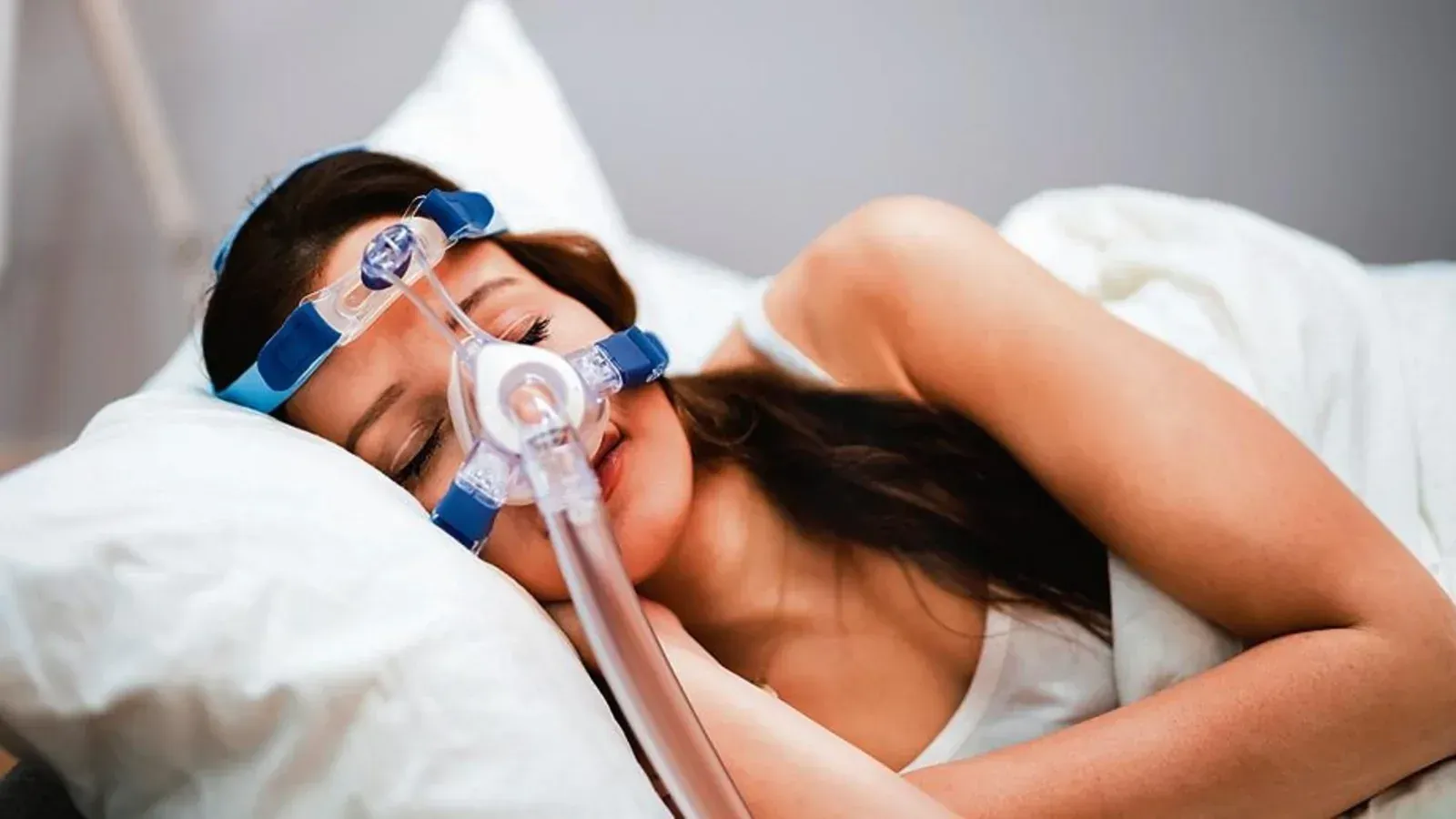Understanding Sleep Apnea
Sleep apnea comes in three main types:
- Obstructive Sleep Apnea (OSA): The most common form, where the throat muscles intermittently relax and block the airway.
- Central Sleep Apnea (CSA): Occurs when the brain doesn’t send proper signals to the muscles that control breathing.
- Complex Sleep Apnea Syndrome: Also known as treatment-emergent central sleep apnea, it is a combination of OSA and CSA.
How Sleep Apnea Disrupts Sleep
During a normal sleep cycle, the body goes through several stages of sleep, including light sleep, deep sleep, and REM (rapid eye movement) sleep. Each stage is crucial for physical and mental restoration. However, sleep apnea interrupts these stages, preventing the sufferer from reaching the deeper, more restorative phases of sleep.
- Frequent Awakenings: Each time breathing stops, the brain briefly wakes the person up to resume normal breathing, leading to fragmented sleep.
- Reduced Oxygen Levels: The interruptions in breathing cause drops in blood oxygen levels, which can strain the cardiovascular system and disrupt normal sleep patterns.
- Hormonal Imbalances: Sleep apnea can affect the balance of hormones that regulate sleep, such as cortisol and melatonin, further contributing to poor sleep quality.
Why Does Sleep Apnea Make You Tired?
- Lack of Deep Sleep: Since sleep apnea prevents sufferers from reaching deep sleep stages, they miss out on the most restorative part of the sleep cycle. Deep sleep is essential for memory consolidation, muscle repair, and overall physical health.
- Increased Effort to Breathe: The constant effort to breathe through a blocked airway can be exhausting, leading to increased fatigue.
- Sympathetic Nervous System Activation: Frequent awakenings and low oxygen levels activate the sympathetic nervous system, the body’s “fight or flight” response, which keeps the body in a state of alertness, making it difficult to get restful sleep.
- Daytime Sleepiness: The cumulative effect of disrupted sleep is excessive daytime sleepiness, making it hard to concentrate, stay alert, and perform daily activities.
Health Implications of Sleep Apnea
Untreated sleep apnea can lead to a range of health problems, including:
- Cardiovascular Issues: Increased risk of hypertension, heart disease, stroke, and heart failure.
- Diabetes: Poor sleep quality can affect glucose metabolism, increasing the risk of developing type 2 diabetes.
- Mental Health Disorders: Sleep apnea is linked to depression, anxiety, and mood swings due to chronic sleep deprivation.
- Cognitive Impairment: Issues with memory, attention, and decision-making are common among those with untreated sleep apnea.
Diagnosing Sleep Apnea
If you suspect you have sleep apnea, it’s crucial to seek medical advice. Diagnosis typically involves:
- Medical History and Physical Examination: Discussing symptoms and risk factors with your doctor.
- Sleep Studies: Polysomnography, an overnight sleep study, monitors various physiological parameters during sleep to identify apnea episodes.
- Home Sleep Apnea Tests: Simpler, less comprehensive tests that can be conducted at home.
Treatment Options for Sleep Apnea
- Lifestyle Changes: Weight loss, quitting smoking, and avoiding alcohol can reduce the severity of sleep apnea symptoms.
- Continuous Positive Airway Pressure (CPAP): The most common treatment, CPAP uses a machine to deliver constant and steady air pressure to keep the airway open during sleep.
- Oral Appliances: Custom-made devices that keep the airway open by positioning the jaw and tongue properly.
- Surgery: In severe cases, surgical interventions may be necessary to remove tissue or reposition anatomical structures that block the airway.
Waklert 150mg: A Treatment for Daytime Sleepiness
For those suffering from excessive daytime sleepiness due to sleep apnea, Waklert 150mg can be a helpful solution. Waklert 150mg is a wakefulness-promoting agent that helps improve alertness and reduce fatigue during the day. It is often prescribed for people with sleep disorders, including sleep apnea, who struggle to stay awake and alert during the day.
Waklert 150mg works by altering the natural chemicals in the brain (neurotransmitters) that regulate sleep and wakefulness. It is important to use this medication under the guidance of a healthcare professional, as it may not be suitable for everyone and can have side effects.
Conclusion
Sleep apnea significantly impacts sleep quality and overall health, leading to chronic fatigue and a host of other health issues. Understanding why sleep apnea makes you tired can help in seeking appropriate treatment and improving sleep quality. Treatments range from lifestyle changes and medical devices to medications like Waklert 150mg, which can help manage daytime sleepiness.
If you suspect you have sleep apnea, consult with a healthcare provider to explore diagnostic options and develop a treatment plan tailored to your needs. Addressing sleep apnea can vastly improve your quality of life, reducing daytime fatigue and enhancing overall health.
By incorporating transition words, maintaining an active voice, and strategically placing SEO keywords and anchor texts, this article provides a comprehensive guide to understanding and managing the fatigue caused by sleep apnea.



